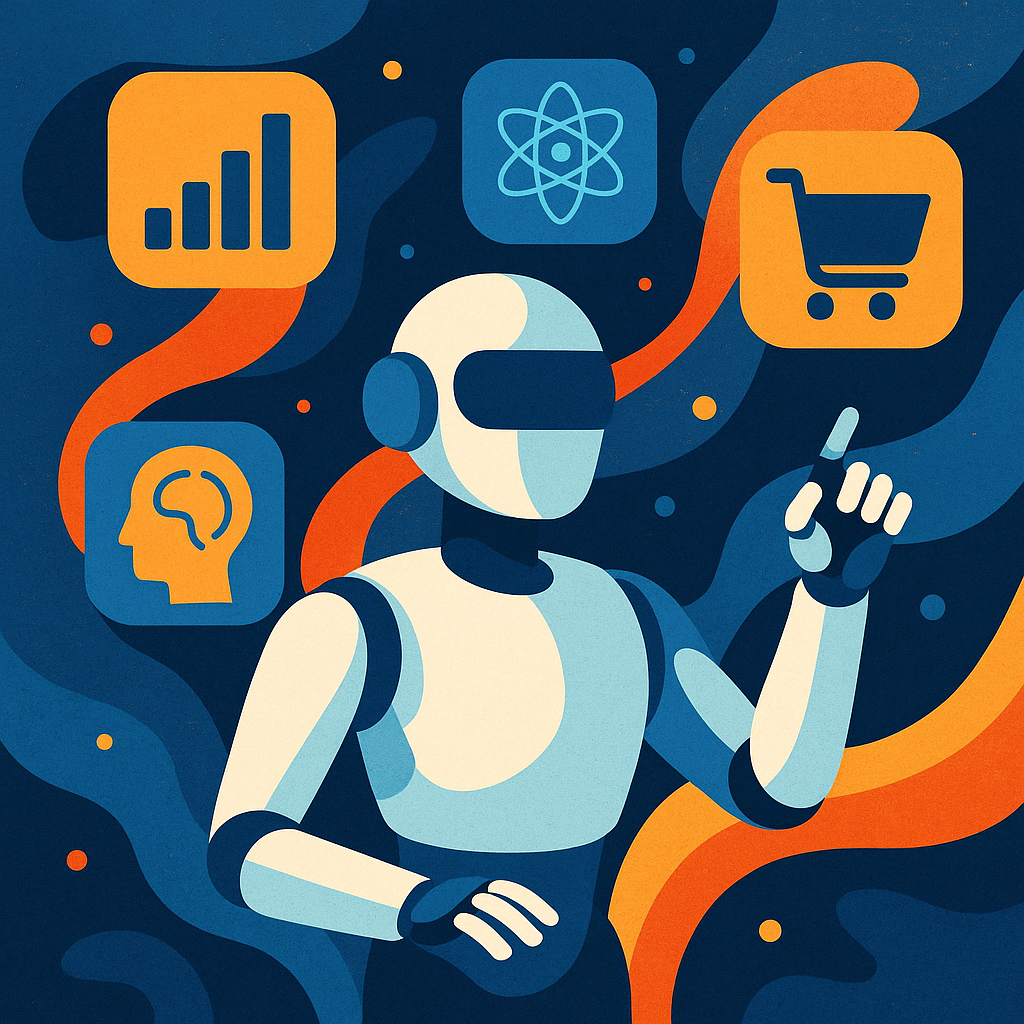Artificial Intelligence (AI) has long been integrated into enterprise operations, driving automation, insight generation, and efficiency. But in 2025, we’re witnessing a more advanced evolution: AI agents—autonomous, intelligent systems capable of acting with minimal human oversight—are becoming the new frontier of enterprise AI.
From finance and HR to healthcare and retail, AI agents are streamlining workflows, accelerating decision-making, and transforming customer experiences. By 2028, Gartner predicts that 33% of enterprise software will feature agentic AI—up from just 1% in 2024. This rapid shift marks the rise of agentic AI, and it’s reshaping how organizations operate at every level.
What Are AI Agents—and What Makes Them “Agentic”?
AI agents differ from traditional AI tools in one key way: they don’t just process data—they act. They interpret information, make decisions, and take action to achieve goals, all while adapting to new conditions with limited human input.
Key Traits of Agentic AI:
- Autonomy: Operates independently within defined parameters.
- Goal-Oriented Behavior: Takes action with a clear outcome in mind.
- Adaptability: Adjusts decisions as environments or data shift.
- Reasoning: Evaluates trade-offs and prioritizes actions logically.
- Learning: Improves performance over time based on experience.
- Collaboration: Coordinates with other agents or humans to solve problems.
Types of AI Agents in the Enterprise
Different types of AI agents serve specific functions. Here are the most common categories:
1. Reactive Agents
Respond to stimuli using predefined rules. Great for repetitive tasks like spam filtering.
2. Model-Based Reflex Agents
Use internal models to operate in partially observable environments—like warehouse robots inferring object locations.
3. Goal-Based Agents
Choose actions to reach defined goals (e.g., rerouting logistics in real-time).
4. Utility-Based Agents
Optimize outcomes based on business value (e.g., prioritizing high-value clients).
5. Learning Agents
Improve with experience—ideal for tasks like fraud detection that evolve.
6. Collaborative Agents
Operate in networks and coordinate across departments, such as supply chain operations.
7. Commerce AI Agents
Enable dynamic pricing and inventory optimization in e-commerce.
8. Customer Support Agents
Use natural language processing to resolve frequent support queries.
Use Cases by Industry and Role
AI agents are not hypothetical—they’re already at work.
🚀 AI Agents in HR
- Virtual HR agents answering employee questions.
- Internal mobility agents matching workers to new roles.
- Onboarding agents automating new hire tasks.
- Skills inference agents identifying hidden talents.
💰 AI Agents in Finance
- Forecasting agents updating projections in real time.
- Variance analysis agents spotting data anomalies.
- Expense monitoring agents ensuring compliance.
🏥 AI Agents in Healthcare
- Credentialing agents verifying staff certifications.
- Scheduling agents managing optimized shift plans.
- Patient intake agents streamlining appointments.
🎓 AI Agents in Higher Education
- Student support agents available 24/7.
- Faculty planning agents optimizing course schedules.
- Retention agents flagging at-risk students early.
🛍️ AI Agents in Retail & Hospitality
- Dynamic scheduling agents responding to real-time demand.
- Pricing optimization agents adapting based on stock & trends.
- Supply chain agents monitoring inventory flow.
Selecting the Right Agentic AI Use Cases
Not all tasks are ideal for AI agents. The best candidates for deployment share these characteristics:
- Clear, measurable goals
- Structured, clean data
- Repeatable logic
Organizations should prioritize use cases by strategic value and automation readiness:
| High Value | Low Value |
|---|---|
| Credentialing, onboarding, forecasting | Testing, basic scheduling |
How Agentic AI Supports Human Work
Contrary to fear-driven narratives, AI agents don’t replace humans—they empower them. 83% of employees believe AI enhances their careers by enabling skill growth and more meaningful work.
Human skills AI can’t replace:
- Emotional intelligence
- Ethical decision-making
- Relationship building
- Adaptability
Agentic AI allows human workers to focus on innovation, creativity, and strategy—while machines handle the repetitive tasks.
What’s Next for AI Agents?
Looking ahead, agentic AI will drive deeper changes in enterprise systems:
- Multi-agent ecosystems across business functions
- Real-time, continuous workflows instead of periodic cycles
- Decentralized governance models for AI oversight
- Infrastructure shifts toward composable, observable systems
- Workforce transformation to support human-AI collaboration
Agentic AI isn’t just the next tech trend—it’s a fundamental transformation of how modern enterprises operate.
